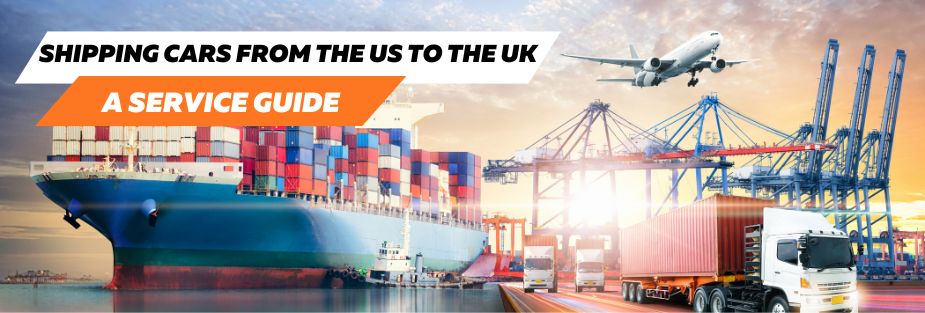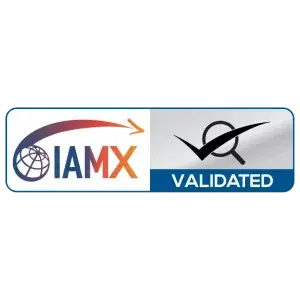Shipping your car from the United States to the United Kingdom can be an excellent solution whether you’re relocating, purchasing a vehicle not available in the UK, or bringing over a classic American car.
Understanding the logistics, costs, and legal requirements is crucial for a smooth transition and ensuring your vehicle arrives safely and legally ready for UK roads.
The US is one of the largest trading partners for the UK, and with automobiles making up a significant portion of exported goods, many find the process of shipping cars across the Atlantic not just necessary but also a financially sound decision. Our guide aims to provide you with all the information you need to navigate this complex process, helping you make informed decisions every step of the way.
Understanding the Basics of Car Shipping
Can I Ship My Car from the US to the UK?
Yes, you can ship your car from the US to the UK, but it involves more than just hiring a shipping service. Before you begin, it’s essential to determine if your car meets UK import regulations, which include safety, environmental, and roadworthiness standards. Additionally, you’ll need to consider the age and condition of your vehicle as these can affect the taxes and duties imposed upon arrival.
Reasons to Consider Shipping Your Car
Shipping your car to the UK can offer several advantages over purchasing a new or used car upon arrival. Here are a few reasons why you might consider this option:
- Access to Specific Models: Certain car models, especially classic or specialized vehicles, may not be available in the UK. Shipping your current vehicle ensures you keep driving a car you love.
- Cost-Effectiveness: In some cases, especially with higher-end or classic cars, it can be more cost-effective to ship a vehicle than to buy a new one in the UK, even after including shipping costs and import duties.
- Convenience: If you are relocating, having your own car immediately available can provide much-needed mobility and comfort as you settle into a new country.
Legal and Regulatory Considerations
Understanding the legalities is paramount when shipping a car from the US to the UK. Since the UK left the European Union, some of the rules governing vehicle imports have changed. Here’s what you need to know:
- Mutual Recognition Agreement (MRA): As of now, the auto category was not included in the UK-USA MRA that came into effect on January 1, 2021. This means you must ensure your vehicle complies with specific UK standards separately.
- Emission Standards: The UK has strict emission standards that your car must meet. This is especially important for newer vehicles.
- Right-Hand Drive: The UK uses right-hand drive vehicles, and while it’s legal to drive a left-hand drive car in the UK, it might affect your vehicle’s resale value and suitability for daily use.
In this section, we’ve covered the initial considerations and groundwork necessary for shipping your car from the US to the UK. As we progress, we will delve deeper into the shipping process, documentation, and cost-effective strategies to ensure your car’s journey is as smooth as possible. Stay tuned for detailed insights to navigate this complex process efficiently.
The Shipping Process Explained
Choosing the Right Shipping Company
Selecting a reliable and experienced shipping company is crucial for the safe and efficient transport of your vehicle across the Atlantic. Consider the following factors when choosing a shipping service:
- Reputation and Reviews: Look for companies with good reputations and positive reviews from previous customers. This can provide insight into their reliability and the quality of their service.
- Service Options: Some companies offer different shipping methods, such as container shipping or roll on/roll off services. Choose one that fits your needs and budget.
- Insurance and Liability Coverage: Ensure the shipping company offers comprehensive insurance to protect your vehicle against damage or loss during transit.
Preparing Your Car for Shipping
Proper preparation can prevent many common issues associated with shipping cars internationally. Follow these steps to prepare your vehicle:
- Documentation: Gather all necessary documents, including your title, registration, and proof of insurance. You may also need a consular invoice, which certifies your car’s compliance with UK standards.
- Clean and Inspect: Thoroughly clean your car inside and out, and document its condition with photos. This can help you identify any damage that might occur during shipping.
- Secure Loose Items: Remove or secure any loose items inside your vehicle to prevent damage during transit.
- Maintenance Check: Ensure your car is in good working order, with no leaks or mechanical problems. Disconnect your battery to prevent drainage.
Shipping Options and Their Costs
Understanding the different shipping options and their associated costs can help you budget effectively:
- Roll On/Roll Off (RoRo): The most cost-effective option, where vehicles are driven on and off the ship. Ideal for cars that are in drivable condition.
- Shared Container Service: Your vehicle is shipped in a container along with other vehicles. This option offers a balance between cost and security.
- Full Container Load (FCL): The most secure, albeit expensive, option. Your car is shipped in a dedicated container, offering the best protection and faster handling times.
Navigating Customs and Import Regulations
Custom Duties and Taxes
Upon arrival in the UK, your vehicle will be subject to various taxes and duties:
- Import Duty: Typically, cars imported from outside the EU are subject to a 10% duty based on the vehicle’s value.
- Value Added Tax (VAT): Vehicles are also subject to a 20% VAT based on the total cost of the car plus the shipping cost.
- Reduced Rates: Classic cars that meet certain criteria may qualify for reduced rates of duty and VAT.
Documentation Needed for Customs
You’ll need to provide several documents to clear UK customs:
- Bill of Lading: This document issued by the carrier details the ship’s voyage, the goods being transported, and the consignment details.
- Import Declaration: Must be filed to declare your goods to UK customs. This can typically be handled by your shipping company.
- Proof of Vehicle Compliance: Documentation proving your vehicle meets UK environmental and safety standards is essential.
Registering Your Imported Car in the UK
After clearing customs, you’ll need to register your vehicle with the Driver and Vehicle Licensing Agency (DVLA):
- Notification of Vehicle Arrival (NOVA): Complete this online notification to inform HMRC about the vehicle import.
- UK Registration: Apply for UK registration and license plates. You’ll need to provide the DVLA with your vehicle’s foreign registration documents, proof of insurance, and a valid MOT certificate if applicable.
- Vehicle Approval Test: If your vehicle is new or substantially altered, you may need to undergo an Individual Vehicle Approval (IVA) test to ensure it meets UK standards.
Navigating the importation process involves understanding and complying with both shipping logistics and regulatory requirements. By thoroughly preparing and choosing the right partners, you can ensure your car arrives safely and is ready for the roads in the UK.
Moving to UK from India?
Start your relocation journey stress-free by contacting us today!
Cost-Effective Shipping Strategies
Cheapest Modes of Shipping
To minimize the costs associated with shipping your car from the US to the UK, consider the following options:
- Roll On/Roll Off (RoRo): As mentioned earlier, this is generally the most cost-effective shipping method. Vehicles are driven directly onto the ship and off at the destination. It’s ideal for operable vehicles and often the choice for budget-conscious shippers.
- Consolidated Container Shipping: Sharing a container with other vehicles can also reduce costs. Although not as cheap as RoRo, it offers better protection for your vehicle during transit.
Best Times to Ship
Shipping rates can vary based on the time of year due to changes in demand and weather conditions. To get the best rates, consider the following:
- Off-Peak Seasons: Try to schedule your shipment during the off-peak seasons. Late fall and winter often see a decrease in shipping volumes, which can lead to lower costs.
- Advanced Booking: Booking your shipment well in advance can also secure better rates. Last-minute bookings often come at a premium due to limited availability.
Additional Savings Tips
Further reduce your shipping costs with these tips:
- Compare Quotes: Get quotes from multiple shipping companies to compare rates and services. Don’t just look at the price—consider the service level and reliability too.
- Negotiate Rates: Don’t be afraid to negotiate with shipping companies, especially if you are shipping multiple vehicles or are a repeat customer.
- Prepare Your Car: Reducing the weight of your car, such as by emptying the fuel tank and removing unnecessary items, can lower the cost slightly since shipping rates are often based on volume and weight.
Common Challenges and How to Overcome Them
Dealing with Delays
Shipping vehicles internationally can be unpredictable with delays often caused by weather, logistical disruptions, or regulatory issues. Here’s how you can manage:
- Stay Informed: Regularly check in with your shipping company for updates. Being proactive can help you adjust plans if needed.
- Plan for Delays: Allow for extra time in your schedule for the car to arrive. Don’t plan any critical activities that require your car immediately after the expected delivery date.
Insurance and Damage Claims
Protect your investment by understanding insurance coverage and how to handle potential damage:
- Adequate Insurance: Ensure that your shipping contract includes comprehensive insurance that covers all potential damage during transit.
- Document Condition: Before shipping, take detailed photos and videos of your car’s condition. This will be crucial evidence if you need to file a claim for damages.
Last Mile Delivery Considerations
Once your car arrives in the UK, getting it from the port to your home or final destination is known as ‘last mile’ delivery. Consider these options:
- Pickup Services: Some shipping companies or third-party providers offer pickup and delivery services from the port to your specified location.
- Temporary Registration: If you prefer to drive your vehicle yourself, you might need to secure temporary registration and insurance from the port to your home.
By carefully planning and preparing for these aspects of the shipping process, you can help ensure that your vehicle arrives safely and affordably, while also mitigating any potential issues that could arise during transit.
Conclusion
Shipping a car from the US to the UK involves careful planning and understanding of both countries’ import and export regulations, shipping methods, and associated costs. By following the guidance provided in this article, you can ensure a smoother transition for your vehicle across the Atlantic. It’s important to choose a reliable shipping company, prepare your vehicle adequately, understand the insurance requirements, and be aware of the customs and registration processes in the UK.
With the right preparation, you can minimize potential delays, avoid unexpected costs, and ensure your vehicle meets all necessary regulations for a successful import. Remember, the key to a stress-free shipping experience is thorough research and planning, coupled with a proactive approach to managing each step of the process.
If you’re planning to ship a car from the US to the UK, consider partnering with a shipping expert like ISS Relocations. With ISS Relocations, you can count on professional guidance, cost-effective shipping solutions, and dedicated support throughout the process.
















